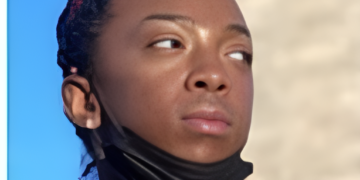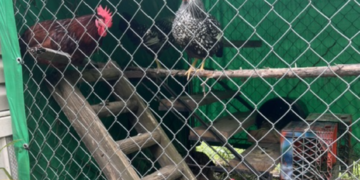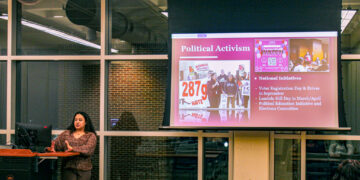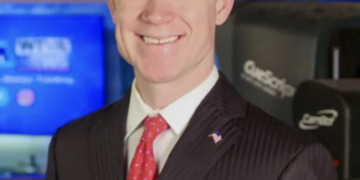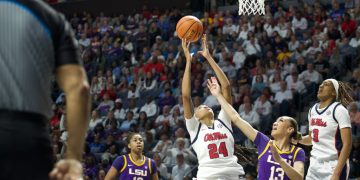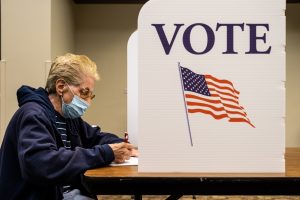
In addition to weighing the policies and politics of Vice President Kamala Harris and former President Donald Trump, students at the University of Mississippi have been exploring their third-party voting options.
Chair and Associate Professor of Political Science John Bruce believes young voters should know their options, including third-party voting.
“For our students, knowing the details of how third-party candidates can shape elections is useful information that will help them be a more effective citizen,” Bruce said.
This year, a few notable third-party candidates are running for the White House, including Jill Stein, Chase Oliver, Randall Terry and Cornell West.
Stein, the Green Party candidate, is an American physician and activist from Chicago. Stein ran for president 2012 and 2016. Stein said that in this election, Americans are not voting for a Republican or Democratic candidate they like but rather the one they dislike the least.
Libertarian Party candidate Chase Oliver, from Nashville, Tenn., is campaigning on balancing the budget, ending military support to Israel and Ukraine, closing all overseas U.S. military bases and abolishing the death penalty.
Representing the Constitution Party, Randall Terry is a pro-life leader, speaker, musician and author from New York who hopes to inspire activists across America.
American philosopher Cornel West started his campaign with The People’s Party, then changed to the Green Party and is now running as an independent candidate. The Tulsa, Okla., native uses his socialist platform to advocate funding public healthcare and changing the U.S. defense budget.
Senior music education major Jody Jenkins voiced his thoughts on Libertarian candidate Chase Oliver.
“One of his campaign slogans is that he is “gay and armed,” which I think is legendary,” Jenkins said. “I’ve always liked a libertarian approach, and they support some pretty basic rights that I align with.”
While Jenkins finds third-party voting important, he also recognizes the societal pushback against it.
“Ultimately, with the way this election cycle is playing out, I would be lying to myself if I thought that a third-party candidate had a chance of winning,” Jenkins said. “Almost no one touches it and treats it like a joke, like when Kanye ran back in 2020.”
Many students, while recognizing their importance, had difficulty identifying third-party candidates.
“I don’t know any third-party candidates,” April Sotelo, a senior anthropology major, said. “If you don’t agree with the main two parties, then voting for a third party isn’t a bad thing to do, but the chances of them winning are slim to none because people are just accustomed to thinking that it has to be either a Republican or a Democrat in office.”
Senior political science and history major Haley Arnold noted the weight that third-party candidates hold within the election.
“Third-party candidates are very important because they give Americans more options than just a two-party system,” Arnold said. “I don’t know any third-party candidates off the top of my head. I feel like a lot of Americans don’t talk about third-party voting and see it as a way of throwing their vote away.”
Junior psychology major Ashton Castro said that while third-party candidates are on the ballot, they are rarely put in the spotlight like the Democratic and Republican candidates.
“I know there are multiple independent parties that feature in the ballot,” Castro said. “But their candidates are rarely platformed in the media, except when their existence is issued to split the opposition vote and preserve the status quo.”
Noah Leingang is the president and founder of the Ole Miss chapter of BridgeUSA, a multi-partisan student movement that champions viewpoint diversity, responsible discourse and a solution-oriented political culture.
BridgeUSA has recently been tabling on the student union plaza to engage with students about questions or topics displayed on a whiteboard. Leingang noted that while on-campus participation has not peaked for BridgeUSA, the group is seeing an uptick in interest.
“I am constantly getting membership requests through the ForUM,” Leingang said. “That tells me that people are specifically seeking out organizations like ours where they can voice their opinions and hear other people’s as well.”
Leingang shared his hopes for the group throughout the election season.
“Through BridgeUSA, I want young people on our campus to feel empowered as voters and to choose the candidate that best aligns with their values, whether that be from a major party or third party,” Leingang said.


